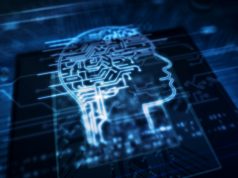The fear of intelligence in something other than the human mind has long been feared by scientists, conspiracy theorists and tech-minded people since the very notion it was possible was thought of. The argument that artificial intelligence could be the best or worst thing for humanity is a divisive battle, one with many good points on either side.
Since the dawn of the artificial intelligence field people have been warning of a machine-revolt, over throwing human power in one sweep as the conscious machines take over the world. Some scientists believe that humanity is not doing enough to prepare for the inevitable rise of artificial intelligence. Artificial intelligence is a broad and active area of research, but it’s no longer solely thought of in academics. More and more, companies are incorporating AI into their products. And there’s one name that keeps cropping up in this particular field that shouldn’t be too much of a surprise: Google. From smartphone assistants to driverless cars, the Silicon Valley-based tech conglomerate is gearing up to be a major player in the future of artificial intelligence.
Google noted in a blog post;
“We believe quantum computing may help solve some of the most challenging computer science problems, particularly in machine learning. Machine learning is all about building better models of the world to make more accurate predictions. If we want to cure diseases, we need better models of how they develop. If we want to create effective environmental policies, we need better models of what’s happening to our climate. And if we want to build a more useful search engine, we need to better understand spoken questions and what’s on the web so you get the best answer.” Google Research Blog
Google, the California based company, understands that artificial intelligence is essential for human advancement in medicine, technology, finance etc. Without it, we will be making progress at a much slower pace, with it our progress will be exponential and unrivaled in history. Instead of months and months of coding needed for new websites and tech advancements, coding could be done in an instant by an intelligent computer. However, those who are not on Google’s team have some legitimate worries about artificial intelligence. Especially because those developing it – mainly Google and NASA, have a lot of our personal data stored on their servers.
The United States government is also concerned about how artificial intelligence will play a role in the future. So concerned in fact that earlier this month the Deputy U.S Chief Technology Officer, Ed Felton, wrote a blog post about what the government would like to learn about A.I. The request for public input is so the government can learn from a wide range of people exactly where A.I is going and what the possibilities for the future are. As well as the public feeling towards the possibility of autonomous A.I.
The Daily Journal of the United States Government is currently asking for information on the following topics:
- The legal and governance implications of AI;
- The use of AI for public good;
- The safety and control issues for AI;
- The social and economic implications of AI;
- The most pressing, fundamental questions in AI research, common to most or all scientific fields;
- The most important research gaps in AI that must be addressed to advance this field and benefit the public;
- The scientific and technical training that will be needed to take advantage of harnessing the potential of AI technology, and the challenges faced by institutions of higher education in retaining faculty and responding to explosive growth in student enrollment in AI-related courses and courses of study;
- The specific steps that could be taken by the federal government, research institutes, universities, and philanthropies to encourage multi-disciplinary AI research;
- Specific training data sets that can accelerate the development of AI and its application;
- The role that “market shaping” approaches such as incentive prizes and Advanced Market Commitments can play in accelerating the development of applications of AI to address societal needs, such as accelerated training for low and moderate income workers;
- Any additional information related to AI research or policymaking, not requested above.
If you have any comments, concerns or information regarding any of the information listed by the OTSP above than you can share this information by Fax, Telephone or online at the federal governments website: WhiteHouse.gov
The debate on whether or not artificial intelligence will be humanity’s greatest achievement or unequivocal downfall is yet to be determined. Gathering information on the public’s opinion on the matter will be taken into consideration as major public and private companies like NASA and Google experiment with existing and theorize not-yet-existing technologies.










